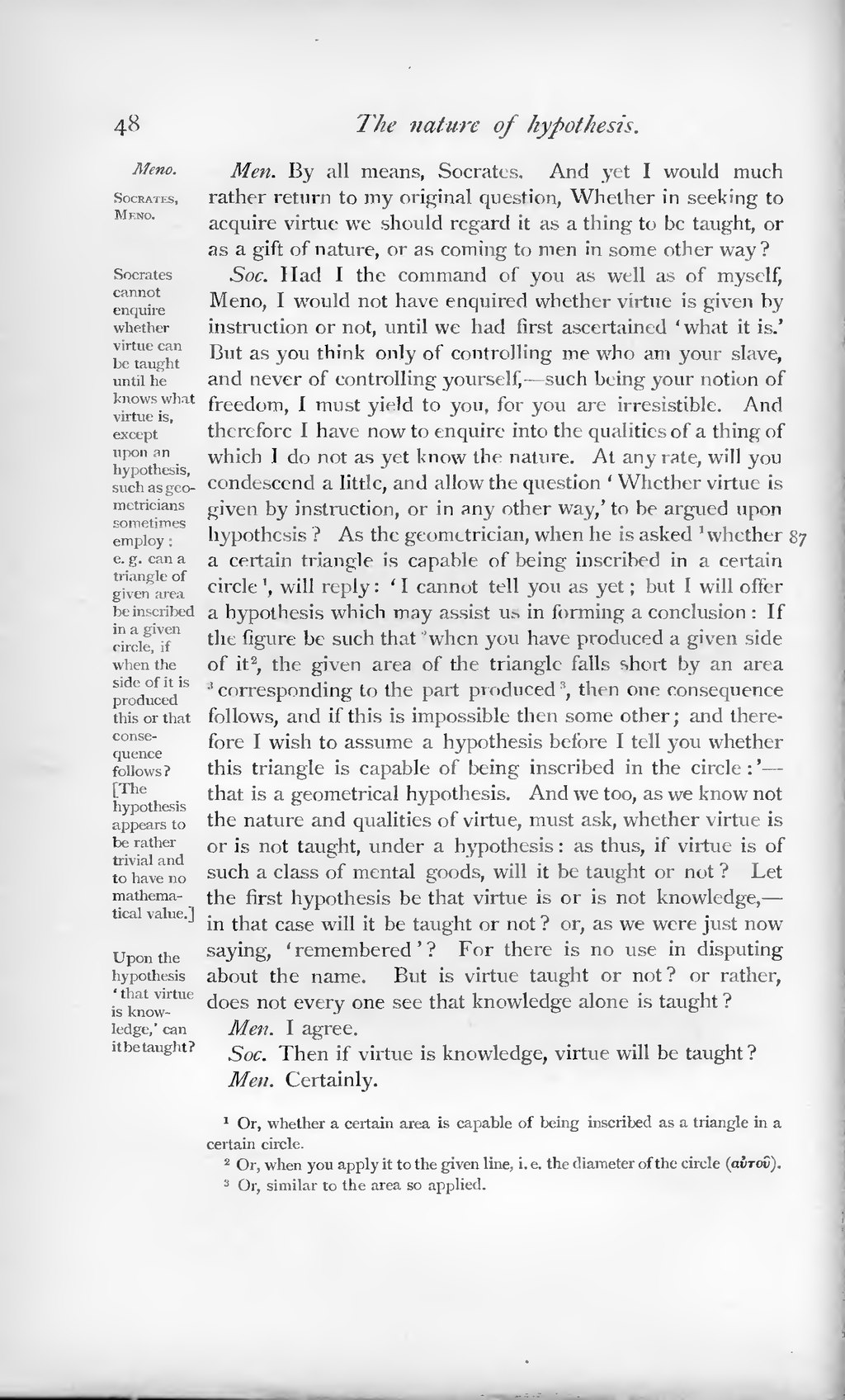Meno.
Socrates, Meno.
Men. By all means, Socrates. And yet I would much rather return to my original question, Whether in seeking to acquire virtue we should regard it as a thing to be taught, or as a gift of nature, or as coming to men in some other way?
Socrates cannot enquire whether virtue can be taught until he knows what virtue is, except upon an hypothesis, such as geometricians sometimes employ: e.g. can a triangle of given area be inscribed in a given circle, if when the side of it is produced this or that consequence follows? [The hypothesis appears to be rather trivial and to have no mathematical value.] Soc. Had I the command of you as well as of myself, Meno, I would not have enquired whether virtue is given by instruction or not, until we had first ascertained 'what it is.' But as you think only of controlling me who am your slave, and never of controlling yourself,—such being your notion of freedom, I must yield to you, for you are irresistible. And therefore I have now to enquire into the qualities of a thing of which I do not as yet know the nature. At any rate, will you condescend a little, and allow the question 'Whether virtue is given by instruction, or in any other way,' to be argued upon hypothesis? As the geometrician, when he is asked[1] 'whether87 a certain triangle is capable of being inscribed in a certain circle', will reply: 'I cannot tell you as yet; but I will offer a hypothesis which may assist us in forming a conclusion: If the figure be such that 'when you have produced a given side of it,[2] the given area of the triangle falls short by an area corresponding to the part produced,[3] then one consequence follows, and if this is impossible then some other; and therefore I wish to assume a hypothesis before I tell you whether this triangle is capable of being inscribed in the circle:'—that is a geometrical hypothesis. And we too, as we know not the nature and qualities of virtue, must ask, whether virtue is or is not taught, under a hypothesis: as thus, if virtue is of such a class of mental goods, will it be taught or not? Let the first hypothesis be that virtue is or is not knowledge,—in that case will it be taught or not? or, as we were just now Upon the hypothesis 'that virtue is knowledge,' can it be taught? saying, 'remembered'? For there is no use in disputing about the name. But is virtue taught or not? or rather, does not every one see that knowledge alone is taught?
Men. I agree.
Soc. Then if virtue is knowledge, virtue will be taught?
Men. Certainly.

